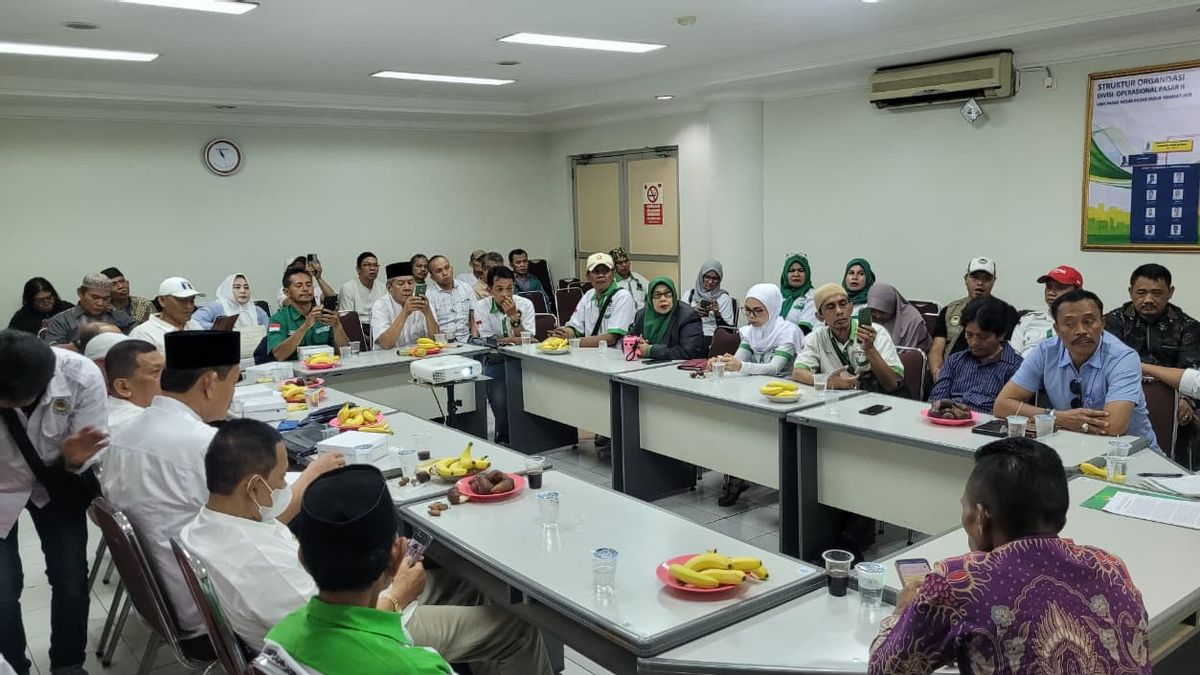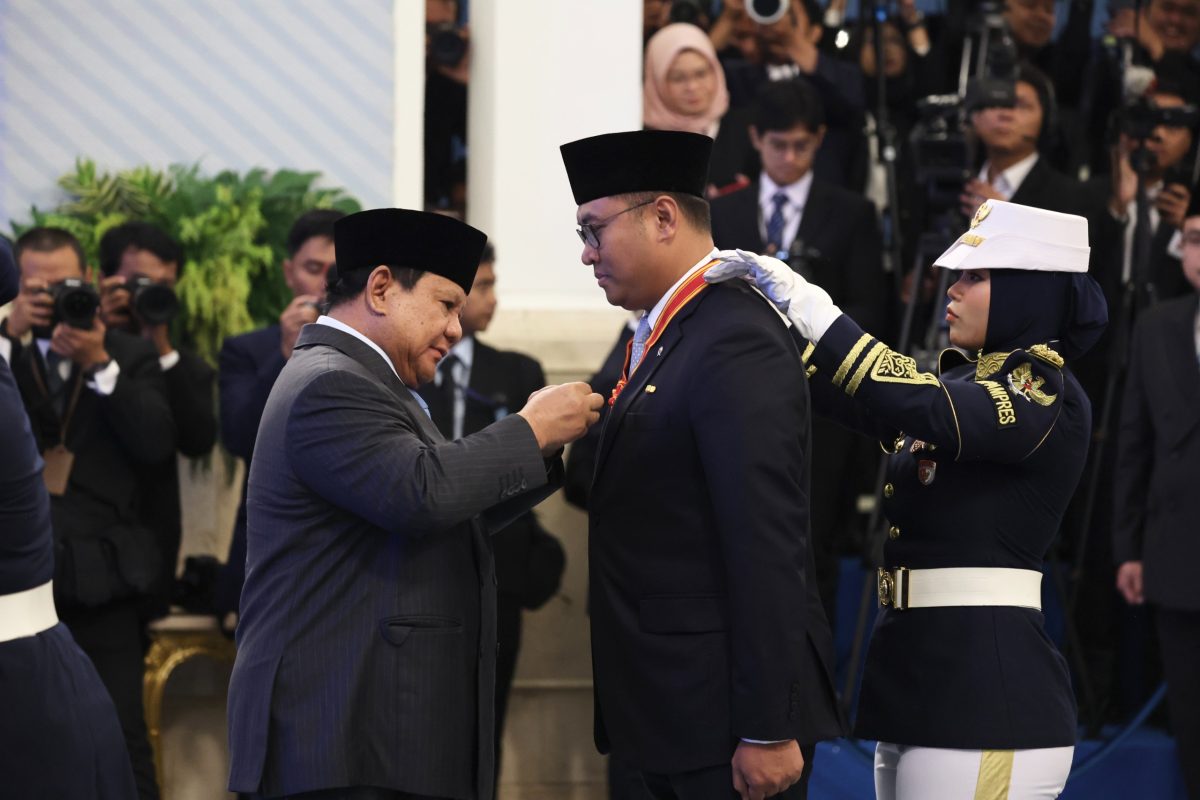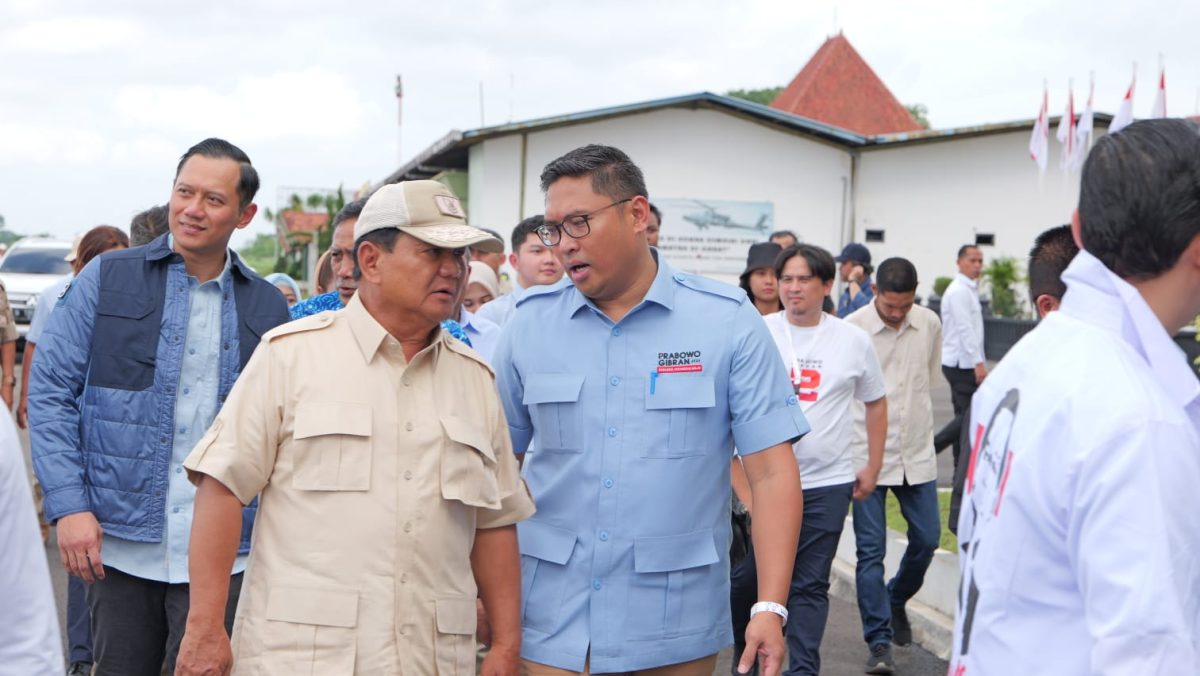Crisis In Traditional Markets! APPSI Urges To Remove CMS And Unreasonable Costs

The All-Indonesian Market Traders Association (APPSI) of DKI Jakarta expressed rejection of the implementation of the Cash Management System (CMS) system and the cost of Extending the Right to Use (PHP) kiosk and market stalls.
This statement of attitude surfaced in the DKI Jakarta People’s Market Traders’ Sarasehan which was held at the Kramat Jati Main Market, Friday, October 17, which was attended by representatives of traders from various regions of the capital.
In the forum, traders assessed that auto-based CMS actually added to their operating expenses, because they did not consider daily turnover fluctuations. Meanwhile, PHP costs are considered not transparent and irrational, in the midst of the condition of market facilities which are still heavily damaged and unordered.
“Market traders are the backbone of the people’s economy. We maintain the availability and distribution of basic needs of the community. Do not let us, who support the people’s economy, continue to be burdened with policies that are not in favor,” said Ngadiran of the APPSI Board of Trustees in Jakarta, Saturday, October 18.
Di sisi lain, Jarwanto, pedagang Pasar Anyar Bahari Jakarta Utara, menegaskan bahwa sistem CMS sama sekali tidak sesuai dengan kondisi lapangan.
The income of traders is uncertain every day. If there is an autodebet without adjusting its capabilities, it is clearly burdensome. We ask that this system be evaluated in total, even if it can be removed or given relief for small traders,” he said.
Arnovi, or familiarly called Bule, a trader at Pasar Senen, Central Jakarta, also highlighted the cost of PHP which was considered unreasonable.
“The amount of PHP costs is not clear, while many market facilities are still damaged. Traders are already burdened with daily rentals and levies, no longer adding irrational burdens,” he said.
Meanwhile, Suparno from Duta Mas Market, West Jakarta, emphasized another problem, namely the impact of market revitalization which often makes it difficult for small traders.
The revitalization should improve conditions, not kill traders. Many friends were finally eliminated because they were unable to follow the new costs after the market was revitalized,” he said.
Through a statement of attitude, APPSI urged the DKI Jakarta Provincial Government together with PD Pasar Jaya to review the CMS and PHP policies. They emphasized the need for transparency in tariff determination, and asked for market infrastructure improvements to be carried out in stages and evenly by involving traders representatives in each planning process.
“In addition, APPSI also highlights the challenges of the rise of online trade. Local governments are asked to present real protection policies for traditional market traders, including through training programs, empowerment, and access to financing, so that market traders can compete in the digital era,” said Jhon, a trader at Pasar Senen, Central Jakarta.
This gathering is also a momentum for strengthening solidarity among traditional market traders or the people’s market. Ngadiran emphasized that APPSI will continue to raise and fight with traditional market traders or people’s markets throughout Indonesia so that local governments actually present policies that favor the economy of the small people.
“Traditional markets are the center of the people’s economy. The government must come with fair, transparent, and does not burden small traders,” said Ngadiran in a statement on APPSI’s stance.
He also urged local governments to develop policies that favor people’s market traders or traditional market traders, including the direct involvement of trade associations, in this case APPSI, in the process of consulting and making decisions related to market management and policy.
“We call for strengthening solidarity between market traders throughout Indonesia, especially in the DKI Jakarta area, as well as a joint commitment to fight for the government’s side with the economy of the small people through dialogue and constructive policies,” he concluded.
With this affirmation, traders hope that the government will open a wider space for dialogue, so that every market policy can reflect the real conditions of traders and maintain the economic sustainability of the small people who rely on traditional markets.
BACA JUGA: Dinilai Bakal Merugikan Pedagang, APPSI Tolak Raperda KTR di DKI Jakarta



